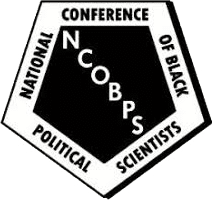The National Conference of Black Political Scientists vehemently condemns the United States Supreme Court’s decision to outlaw the use of race in college admissions, specifically in the case of Students for Fair Admissions v. Harvard. This ruling by the highest court in the land will undoubtedly have significant implications for diversity in higher education. However, it is important to recognize that its consequences will extend well beyond the realm of academia. This ruling by the SCOTUS has the potential to have far-reaching implications on how race is defined and proven in cases related to racism.
In the past year alone, the United States has experienced a disturbing surge in political violence in various ways including assaults on voting rights; an insurrection; book bans; the usurping and dismantling of diversity initiatives; attacks on LGBTQ+ rights; and the reversal of landmark decisions such as Roe v. Wade. Once again, we find ourselves trapped in a disheartening cycle of progress and regression. Just last week, the Supreme Court issued a decision that could lay the groundwork for fair political representation in Louisiana. Yet this week, the same court has undermined efforts to achieve racial equity and inclusion in our educational institutions.
During a lecture at DePauw University, Dr. Menna Demessie posed a timely question: “Do race-based problems necessitate race-based solutions?” In attempting to answer this question, she drew upon the profound scholarship of esteemed members of the National Conference of Black Political Scientists. Through their research and analysis, they have illuminated the pervasive impact of race and its relevance in every facet of our society.
Many of our members in the National Conference of Black Political Scientists work as university professors, researchers, deans, chief diversity officers, college presidents, and leaders in the private sector. Much of the work we do contributes empirically and theoretically to our understanding of race and how society functions. For example, several of our members have personally worked as expert witnesses in litigated affirmative action cases, and many of you have engaged in serious scholarship that supports legal arguments used in various cases over the years.
We are currently engaged in a challenging battle against white supremacy in the United States. Our member scholarship has been targeted, and some members have faced attacks by the state. Voting rights and numerous other rights are under assault in this nation. With these significant setbacks, it appears that we are regressing and making less progress than we had hoped for. In the face of these disheartening developments, I write to you today to encourage you to remain vigilant and strong. Now, more than ever, we must protect our scholarship, continue writing, and bear witness to the successes and contributions of our people.
American democracy is faltering, and our political institutions are weak. It is up to leaders like you to persevere in the important work you do, both in teaching and in scholarship. Emphasize diverse perspectives in your teaching and provide students with knowledge about the valuable contributions made by different groups in our world. Additionally, always advocate for one another as we navigate the halls of higher education. These are challenging times, and the future may seem uncertain, but I urge us to remain vigilant and committed to the ideals of our organization.
In Service, Solidarity, and Empowerment,
Dr. Emmitt Y. Riley
President
National Conference of Black Political Scientists
